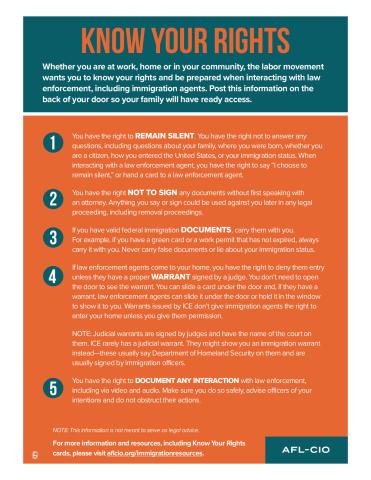In a turbulent world, countries with more privilege have a powerful ability to protect people from countries experiencing crises such as war, natural disaster or ongoing violence and prevent them from returning to conditions that could cost them their lives. Since 1990, the United States has allowed more than 300,000 immigrants from such countries to live and work here under Temporary Protected Status.
Anti-immigrant groups are pushing the administration to end TPS status, which would strip away work authorization from hardworking men and women and risk sending them back into harm's way. Although we hear a lot about the refugee program, too little is known about TPS. Here are five things working people need to know about this important program:
1. TPS immigrants receive provisional protection against deportation and temporary permission to work in the United States. The majority of current TPS holders have been working in and contributing to our communities for more than 15 years. They pay taxes, join unions, own homes and raise families.
2. TPS status for each country must be renewed at least every 18 months, and each time workers renew their permits they undergo a new security screening.
3. In all, more than 320,000 people from 10 countries are at risk of losing protected status in 2018. El Salvador leads the way with nearly 200,000 people, followed by Honduras and Haiti, as countries with the largest population to be affected. Other TPS countries include Nepal, Nicaragua, Somalia, South Sudan, Sudan, Syria and Yemen.
4. TPS designations are made based on extreme circumstances that persist. Sudan, for instance, is still under a State Department travel advisory that warns travelers not to visit the country because of ongoing risks of terrorism, armed conflict and violent crime. Haiti is in turmoil after being hit not only with a devastating earthquake, but by a massive cholera epidemic and multiple category 4 hurricanes.
5. The AFL-CIO opposes this attack on working people. Failure to renew TPS will actively harm our economy, our communities and our unions. We want more working people to have rights on the job, not fewer.
Take action today to hold the line on workplace rights for TPS holders.


